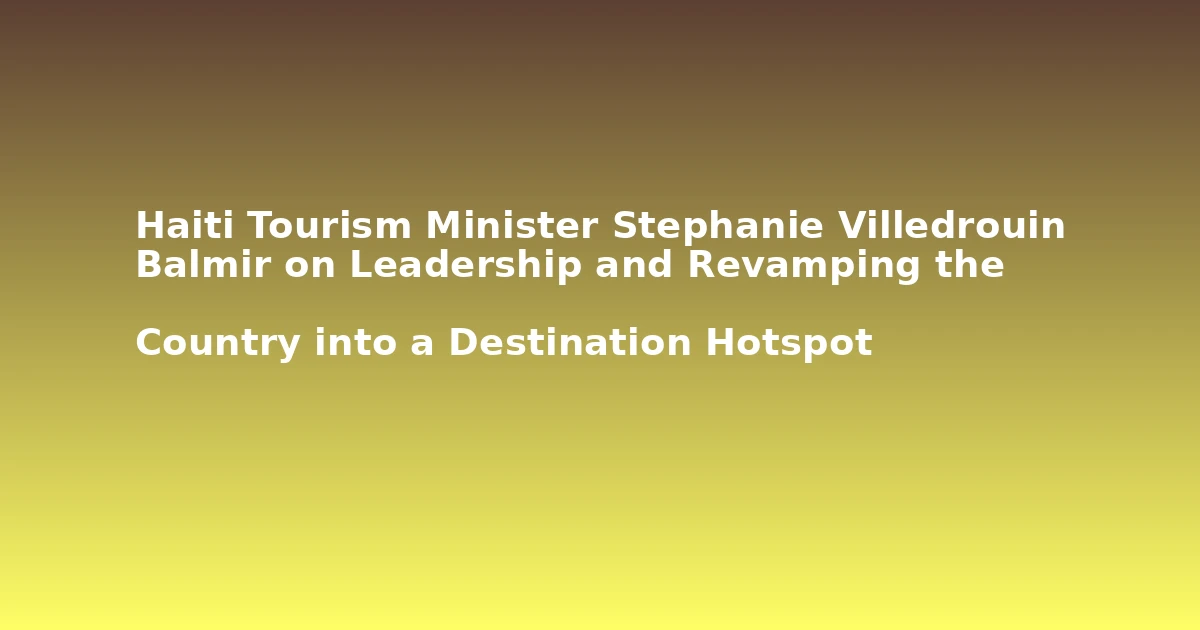Myabèl Cocktail Bar and Restaurant sits in a little city in Haiti called Croix-des-Bouquets. Co-owned by the attorney Regine Theodat, the eatery is concrete evidence that Haiti is open to entrepreneurship ventures brought about by the US-born seeds of the Haitian Dyaspora.
Already a year in existence, Myabèl—in addition to serving fabulous food—hosts live music performances of local and visiting artists.
Theodat was born in Cambridge, Massachusetts and by the time she had reached quarter-life, she had visited Haiti only twice. But, that didn’t stop the Northeastern Law School graduate from exploring the business terrain there. Myabèl is her baby, and she didn’t want for it to be just another restaurant.
For one thing, she wanted the facility to have a menu that highlighted local foods. It was also important for her that everything from the drinks served to the wall decor be authentically Haitian.
Kreyolicious: Tell us your Haitian connection and all.
I can’t pinpoint where, how, or why my connection to Haiti became so strong and defining for me. My family wasn’t heavily connected to a Haitian community but we celebrated the typical Haitian traditions.
I’ve always been very proud of having roots from Haiti and spent a great deal of time learning about Haitian history particularly about our legal/government turmoil, which led me to become a lawyer.
A Myabèl waitress is all smiles as she carries a tray full of signature Myabèl dishes towards the table of a customer.
Kreyolicious: Initially, you came to Haiti to work as a human rights attorney. At which point, did you feel that going into the restaurant business would be a great venture to undertake?
While working as a Human Rights attorney in Cite Soleil, I would hold “Know Your Rights” seminars. During these seminars, despite its irrelevance, I would get the same question—“How can I get a visa to move to the States?” After about eleven months of this, I started to think about what else I could do that would be helpful to Haiti. Through my human rights experience, I noted that one of the biggest impediments to realizing a just society and an appropriate democracy was the lack of a robust economy.
This realization made me move from human rights to development. While working in development, I saw a need for entrepreneurship that is formal and responsible. I figured while I’m helping other people become socially responsible entrepreneurs, I should set the example.
Kreyolicious: Was Myabèl your first ever business venture?
Yes, Myabèl is my first business venture; my next one will be a consulting firm.
Kreyolicious: While you were a law degree-seeking student at Northeastern University you were involved in a project designed to decrease barriers for minority-owned small businesses. Has some of the things you learned while being involved with that project helped you at all in running your business?
Yes, the issues that I experienced in Haiti are similar to the issues I researched as a law fellow. The two most prominent barriers in the project I led were: one, lack of information availability and sharing; and two, informality.
In my own business experience, it has been shocking to see how difficult it is to obtain information. Even basic information about how to register and where to buy stock is difficult to obtain.
Secondly, businesses in Haiti often operate in the informal sector. Therefore, these businesses have a hard time succeeding at a larger more professional scale. In my own business we spent a great deal of time training our employees about standards and how a formal business functions because after years of informality they often have difficulty adapting.
Kreyolicious: What can customers visiting Myabèl expect?
Customers visiting Myabèl can expect: excellent service. All staff are required one week of training that includes customer service, hygiene, wine/alcohol training and safe serve. All staff are knowledgeable about all we have to offer at Myabèl and can guide customers through the various items we have on our menu.
Creative menu celebrating local ingredients. All menu items have local ingredients that are new spins on Haitian comfort food. Our cocktails are unique to Myabèl made with local ingredients like kleren, Barbancourt, ti bonm etc.
Third, a celebration of Haitian culture in every detail, even uniforms. Our décor was selected with the idea of promoting a tropical Haitian vibe, the uniforms are Karabela dresses and our art is exclusively Haitian art.
Kreyolicious: Typical is generally not a word that goes with entrepreneurship. But on the regular, what are your days like as co-owner of Myabèl?
I have full-time employment as the National Coordinator for the Vincentian Family Haiti Initiative which has me away at the Central Plateau quite a bit. My typical day requires a lot of juggling but my partners do most of the hands on work at Myabèl during the work week.
A typical day for me is waking up early and starting off with social media and emailing. I let our Twitter, Pinterest, and Instagram friends know what is going on even before I get out of bed. Then I plan with my partner any guerrilla marketing we have to do in the immediate area around the restaurant. This includes flyers, text messages to businesses and our Myabèl Fidelity group.
If I go into the restaurant before work, it is to do stock inventory and to check in with the employees. After that I go to work and I spend the day checking in with Myabèl at least every two hours. It requires a lot of management because our human resources aren’t at the level that they would be in more developed countries or in a more developed area of Haiti. We have to spend a great deal of time assuring that our staff do what they are required to do.
What was the most exciting part of starting a business in Haiti?
The most exciting part is witnessing the potential and the growth. The potential that exists in Haiti is immeasurable. It is what I imagine the business landscape in the US looked like during the industrial boom.
It feels like the sky is the limit and that there are so many unexplored industries and sectors. It feels like you are being innovative, and at the same time, you are assisting the country’s development – of course making money isn’t bad either.
Kreyolicious: And the most frustrating?
The most frustrating is that limit of human resources and the barriers of entry to business. Given the our lack of a formidable work history, in Haiti it is often hard to find people that are seasoned employees and understand what a formal job means and requires.
Additionally, given our colonial history and our competitiveness sometimes unnecessary barriers seem to be created based on pettiness from misplaced competitiveness and a desire for others not to succeed.
Kreyolicious: What are some of the things you’ve learned about entrepreneurship and running a business?
I’ve learned to have the patience of 1,000 mothers and how to organize my day to the last minute.
Kreyolicious: How are Americans of Haitian descent who are starting businesses in Haiti viewed by the business community in Haiti?
It depends on who the audience is. I think business owners are typically judged by the professionalism they exhibit. The more professional you are, the more likely you are to be accepted by the business community as a partner and also competition. However, Americans of Haitian descent starting businesses in Haiti without doing their research and relying on how they knew Haiti when they left are looked at as future failures.
Kreyolicious: So many people have managed to build empires without having an education beyond high school. Do you think that college is something entrepreneurs can well do without?
This is a tough question. Both of my business partners are not college graduates. One is currently in college.
However, despite not being college educated, one of them has natural human resource and leadership skills. However, for the writing marketing materials, grants, loans and other applications that we apply for, I’m the one that takes on the brunt of that work. Without my educational background, we wouldn’t be where we were with our business, but conversely without my partner’s natural skills we wouldn’t be either.
Thus, I think it is important if you’d like a formal business, and you don’t have the skills that higher education provides, you align yourself with someone that does.
Kreyolicious: Do you have any counsel for those who were born, or grew up outside of Haiti, who’d like to start a business there, or of course anyone else who may not be familiar with the business landscape there?
Research, research, research and be prepared that anything can happen that is outside of your control and illogical. About six months after we opened we started conducting informational interviews that would have been invaluable information before we opened. In addition to informational interviews, hire consultants that can to help cut the fat out.
Be prepared for anything, literally. We are surprised daily by what our staff, clients, and government do in relationship to the business. Opening a business in Haiti requires all of your time and energy and if you aren’t prepared to be involved daily, all day and night, with the business—then don’t start one.
Last Updated on December 4, 2025 by kreyolicious



